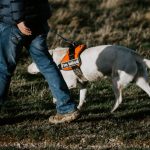
In the realm of canine companionship, there exists a special category of dogs that go beyond the title of “pet.” These are the diligent and dedicated working dogs. But what exactly defines a working dog, and why does this distinction matter? Join us as we explore the ins and outs of what makes a working dog, from practical definitions to legal status in the UK.
Understanding the Concept: What is a Working Dog?
A working dog is more than just a furry friend; it’s a four-legged partner with a job to do. These canines are carefully bred, trained, and employed to perform various tasks that benefit humans. From assisting with herding livestock to aiding in search and rescue missions, working dogs play diverse roles across different sectors.
The Legal Standpoint: Defining Working Dogs in British Law
In the legal landscape of the United Kingdom, the term “working dog” holds specific significance. According to the law, a working dog is one that is actively employed for tasks such as herding, hunting, guarding, or assisting individuals with disabilities. This classification often comes into play in scenarios involving property damage or harm caused by dogs, where different liabilities may apply based on whether the dog is considered a working dog or not.
Why the Distinction Matters
The distinction between working dogs and non-working dogs serves several purposes. Firstly, it helps ensure that these specially trained canines receive the recognition and respect they deserve for their valuable contributions to society. Secondly, it aids in determining appropriate training, care, and handling methods tailored to the specific needs and responsibilities of working dogs. Finally, it assists in legal matters, offering clarity on the rights, responsibilities, and liabilities associated with owning and working with these exceptional animals.
Examples of Working Dogs vs. Non-Working Dogs
- Working Dogs:
- Police Dogs: Trained for tasks such as tracking suspects, detecting drugs or explosives, and apprehending criminals.
- Guide Dogs: Assist individuals with visual impairments by navigating obstacles, facilitating safe travel, and providing companionship.
- Herding Dogs: Aid farmers in managing livestock by guiding, corralling, and controlling the movement of animals.
- Non-Working Dogs:
- Companion Pets: Dogs kept primarily for companionship and as household pets.
- Show Dogs: Bred and trained for participation in conformation shows based on breed standards, without specific working roles.
- Therapy Dogs: Offer emotional support and comfort to individuals in hospitals, nursing homes, or other therapeutic settings. Though technically doing a job, they are not considered to be working dog.
Working dogs are not just ordinary pets; they are skilled professionals with vital roles to play in various fields. Whether they’re assisting law enforcement, guiding individuals with disabilities, or supporting agricultural activities, working dogs embody dedication, intelligence, and loyalty. Understanding the distinction between working dogs and non-working dogs is not only important for legal clarity but also for appreciating the invaluable contributions of these remarkable canines to our society.
By recognising and honouring the unique status of working dogs, we can ensure they receive the admiration, care, and support they need to continue making a positive impact in our lives. So, the next time you encounter a working dog, remember to salute their hard work and dedication—it’s truly paw-some! And be sure to buy them some dog food that has been specifically designed to cater to their dietry needs as working dogs.
What is a working dog?
A working dog is a specially trained canine that assists humans in various tasks, leveraging their intelligence, strength, and keen senses. These dogs are often employed in roles such as search and rescue, police and military work, therapy and assistance, herding livestock, and even as service animals for individuals with disabilities. Working dogs undergo rigorous training to perform their duties effectively, demonstrating remarkable loyalty, focus, and versatility in their work.











